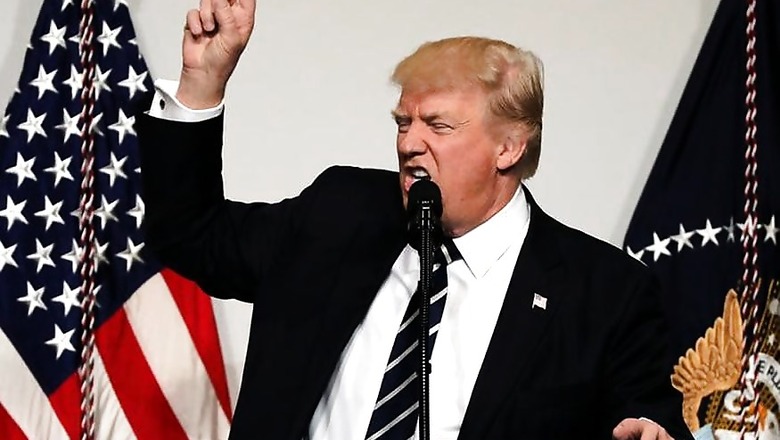
views
"It reveals a chasm of ignorance about how stuff is done," said Michael Hayden, the former head of the CIA and National Security Agency.
"This is going to be more on the 'trim and optimise' as opposed to 'dismantle’," said L Roger Mason Junior, an executive with the non-profit Noblis and a member of the Trump transition team that focused on the national intelligence directorate.
Trump's White House has looked for other ways seize the reins.
Officials have expressed an interest in having more raw intelligence sent to the president for his daily briefings instead of an analysis of information compiled by the agencies, according to current and former US officials. The change would have given his White House advisers more control about the assessments given to him and sidelined some of the conclusions made by intelligence professionals.
Earlier this month, CIA leaders raised concerns with McMaster about an intelligence director on his staff. McMaster moved to replace him, but the staffer, Ezra Cohen-Watnick, appealed to Bannon and Kushner, who got Trump to intervene to save his job.
A US official confirmed Cohen-Watnick had access to the kind of intelligence materials, but maintained he did not play a role in helping the congressman access the documents. The official pointed instead to the other official named in the New York Times report, Michael Ellis, a White House lawyer who previously worked for Nunes on the House committee.
The current and former officials insisted on anonymity because they were not authorised to publicly discuss the sensitive matters.
Stephen Slick, who served in the CIA and NSC for three decades, said intelligence agencies go to "extraordinary lengths" to safeguard the privacy of Americans. He said officials "have no incentive to see intelligence reports they gather and distribute for national security purposes become fodder in domestic political disputes."
At least some of what Nunes viewed at the White House is believed to be communications between foreign governments discussing the incoming administration, which could have been picked up through routine monitoring of diplomats and other foreign officials living in the US.
Hayden said that Trump and his advisers appear to be missing the fact that such information is collected to give the U.S. government insight into the thinking of foreign powers that can be used to Washington's advantage. And as president-elect, Hayden said, Trump would have had access to much of this information.














Comments
0 comment